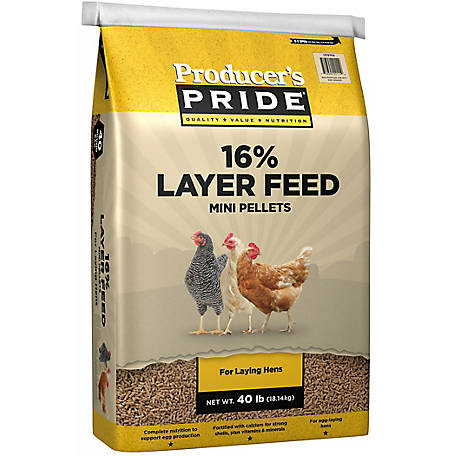Yes we had an issue. At first I thought people were just blaming the feed for the normal winter/molting, but we're going through it right now actually.
Background
We have 16 chickens and one rooster, and they're in their 3rd year of laying. During the summer months, we typically get 12+ eggs per day. During the winter months, it drops to about 8 - 10 eggs per day. When they molt, it drops to 2 - 4 eggs per day. 90% of the time we give our chickens feed from a local feed store. Occasionally we'll pick up the Tractor Supply chicken feed. Our chickens free range 3 - 4 days per week, and we also give them table scrap treats.
So this winter our chickens molted in December, and by early January we were back up to the normal winter laying of 8 - 10 eggs per day. They have been eating the local feed store feed this entire winter. Approximately two weeks ago we gave them a bag of Tractor Supply feed, and the egg laying has dropped off to no more than 2 eggs per day. Yesterday the TS feed ran out, and we're back to our normal local feed so we'll see what happens.
Btw this was posted on Gab 5 days ago:

 gab.com
gab.com
Background
We have 16 chickens and one rooster, and they're in their 3rd year of laying. During the summer months, we typically get 12+ eggs per day. During the winter months, it drops to about 8 - 10 eggs per day. When they molt, it drops to 2 - 4 eggs per day. 90% of the time we give our chickens feed from a local feed store. Occasionally we'll pick up the Tractor Supply chicken feed. Our chickens free range 3 - 4 days per week, and we also give them table scrap treats.
So this winter our chickens molted in December, and by early January we were back up to the normal winter laying of 8 - 10 eggs per day. They have been eating the local feed store feed this entire winter. Approximately two weeks ago we gave them a bag of Tractor Supply feed, and the egg laying has dropped off to no more than 2 eggs per day. Yesterday the TS feed ran out, and we're back to our normal local feed so we'll see what happens.
Btw this was posted on Gab 5 days ago:

BeachMilk on Gab: '“We can CONFIRM now that Tractor Supply's brand o…'
BeachMilk on Gab: '“We can CONFIRM now that Tractor Supply's brand of chicken feed, Producer's Pride 16% Layer Feed Mini Pellets, contains about TWICE the amount of the poisonous weed killer GLYPHOSATE, than any other brand we tested. The next highest brand was Purina Layena Layer Crumbles...











:quality(70)/cloudfront-us-east-1.images.arcpublishing.com/cmg/IWBKDI2QGRBTLKQ7PPGQS52TDE.png)